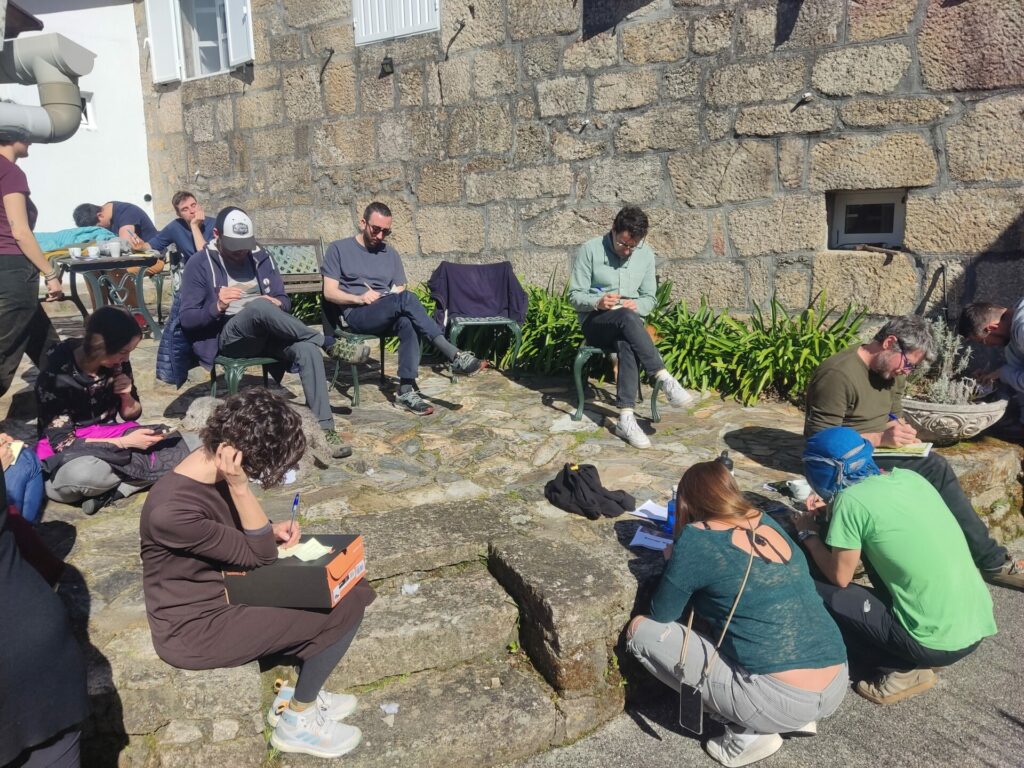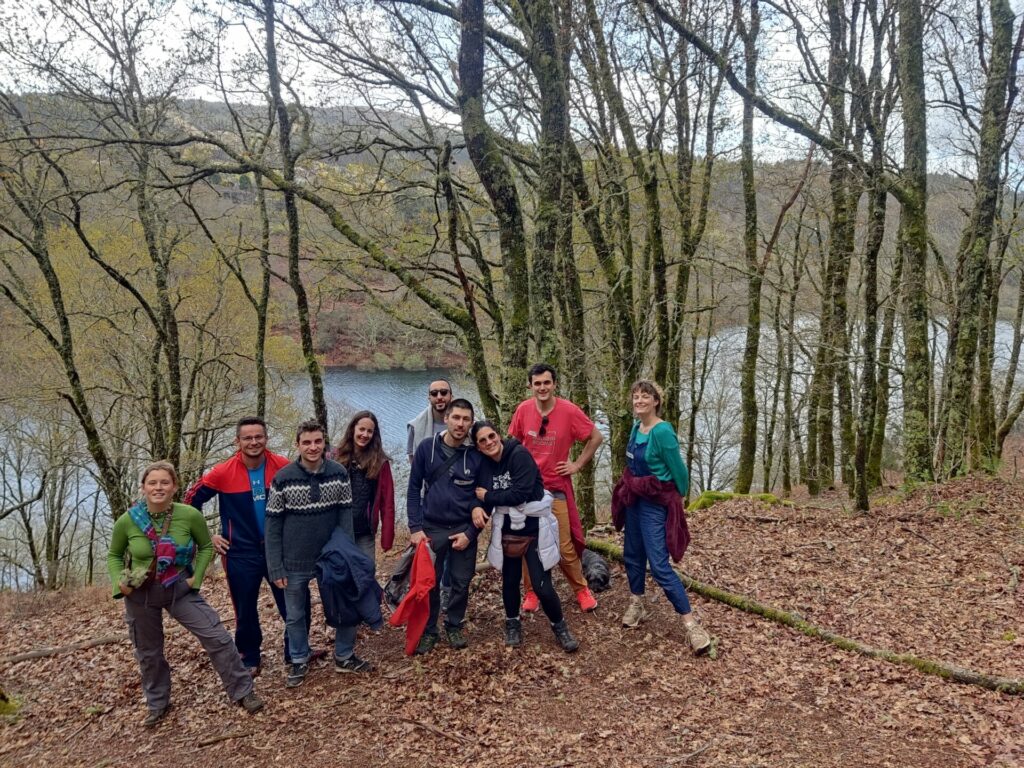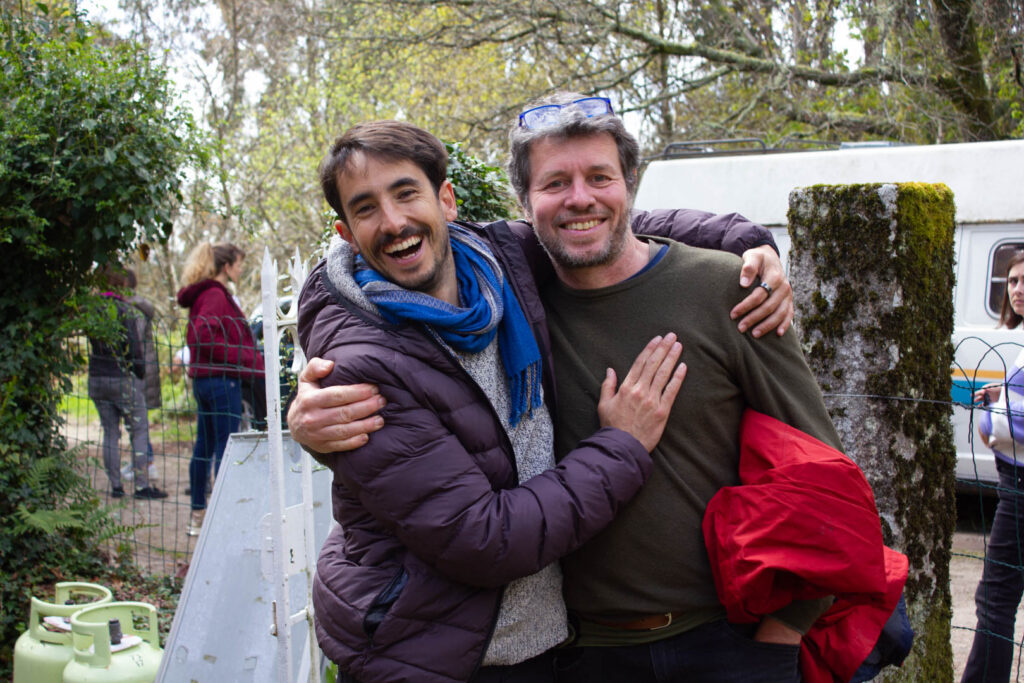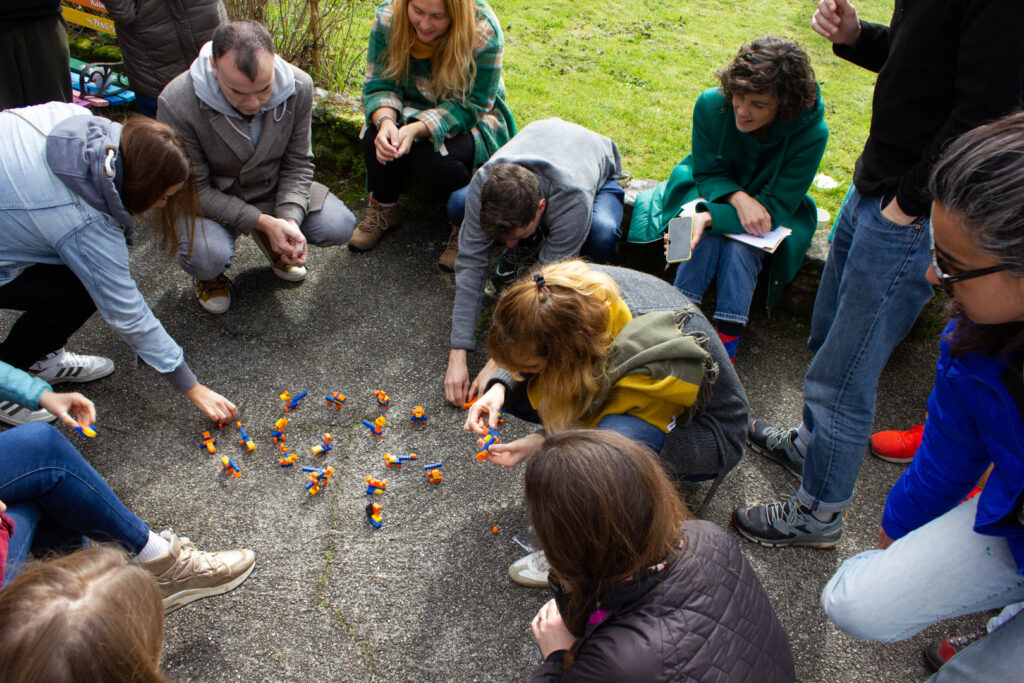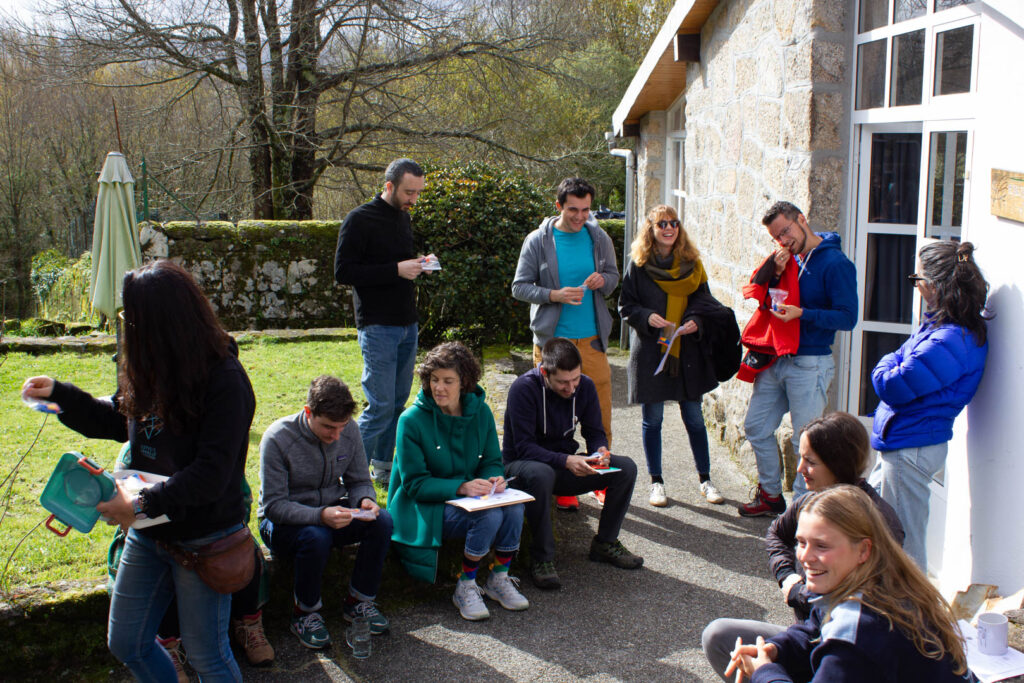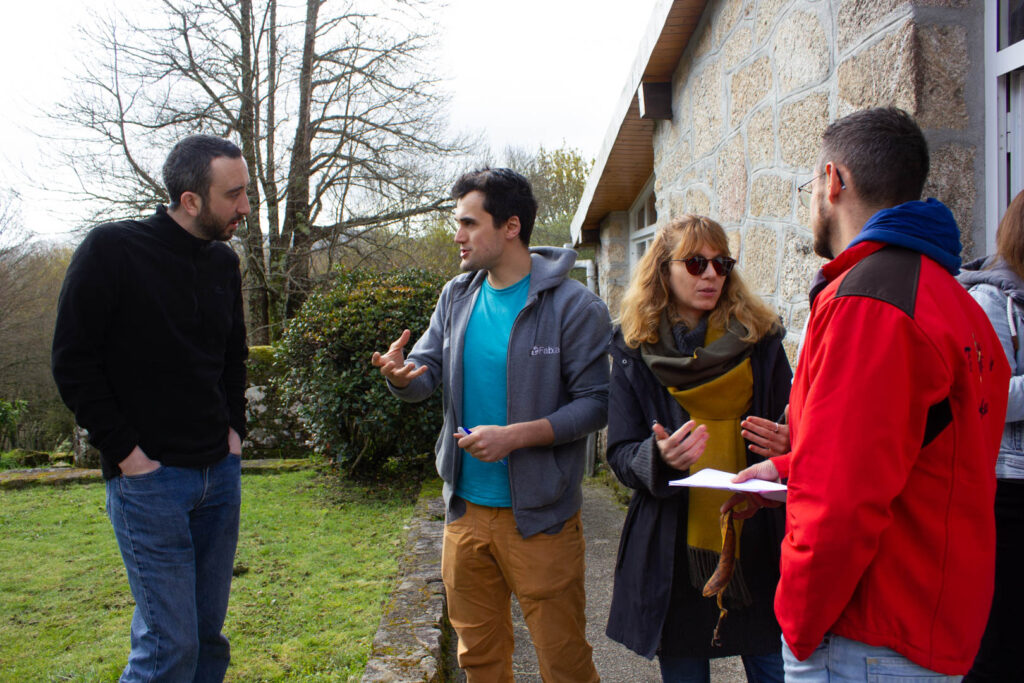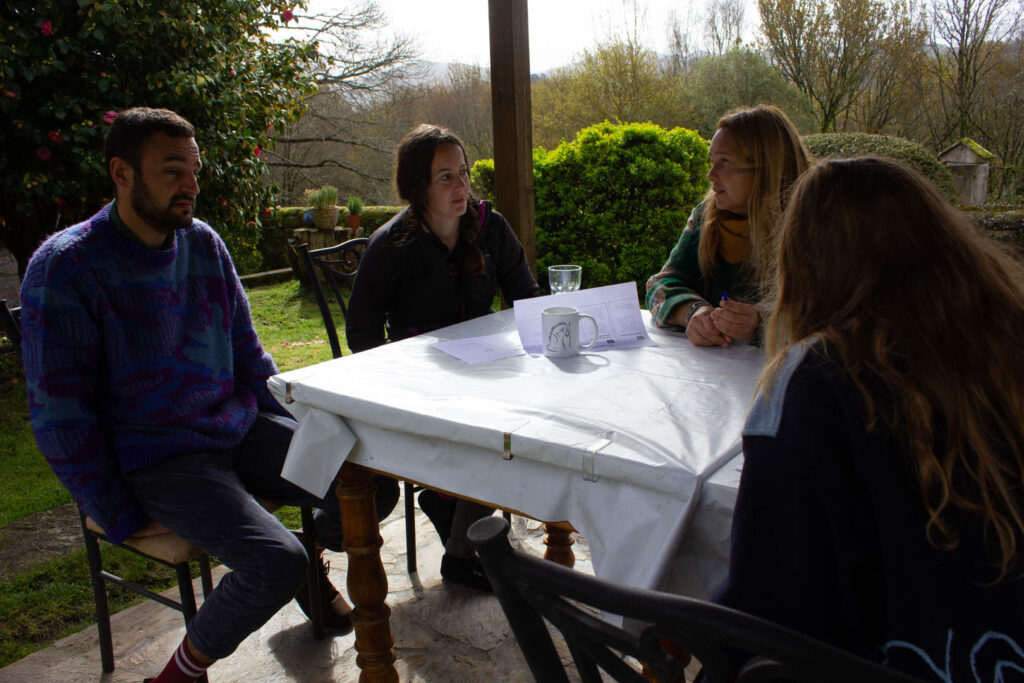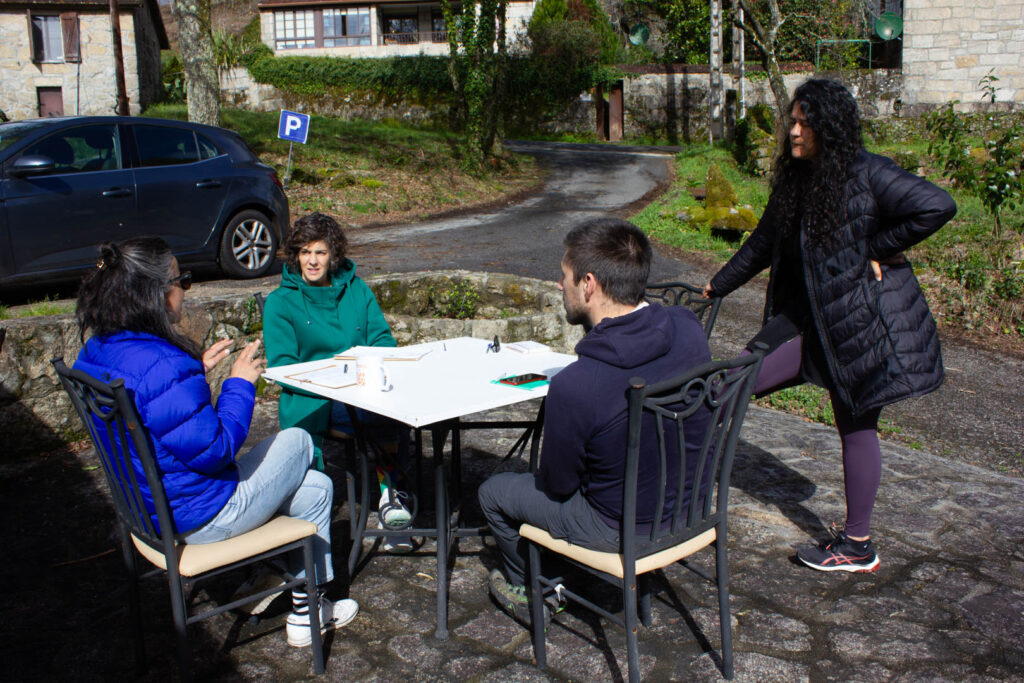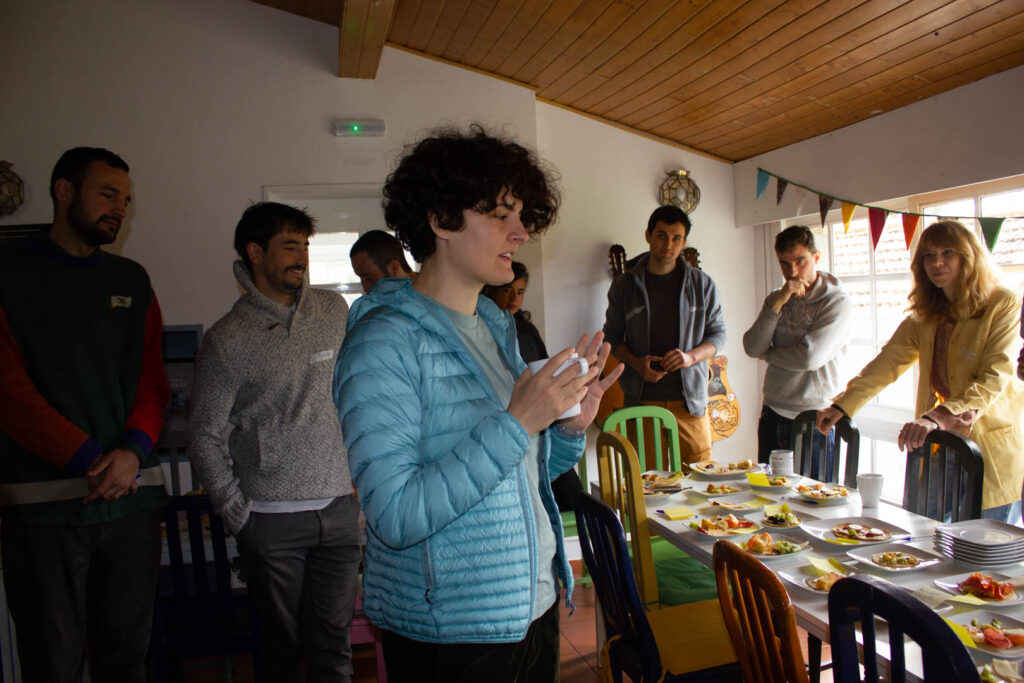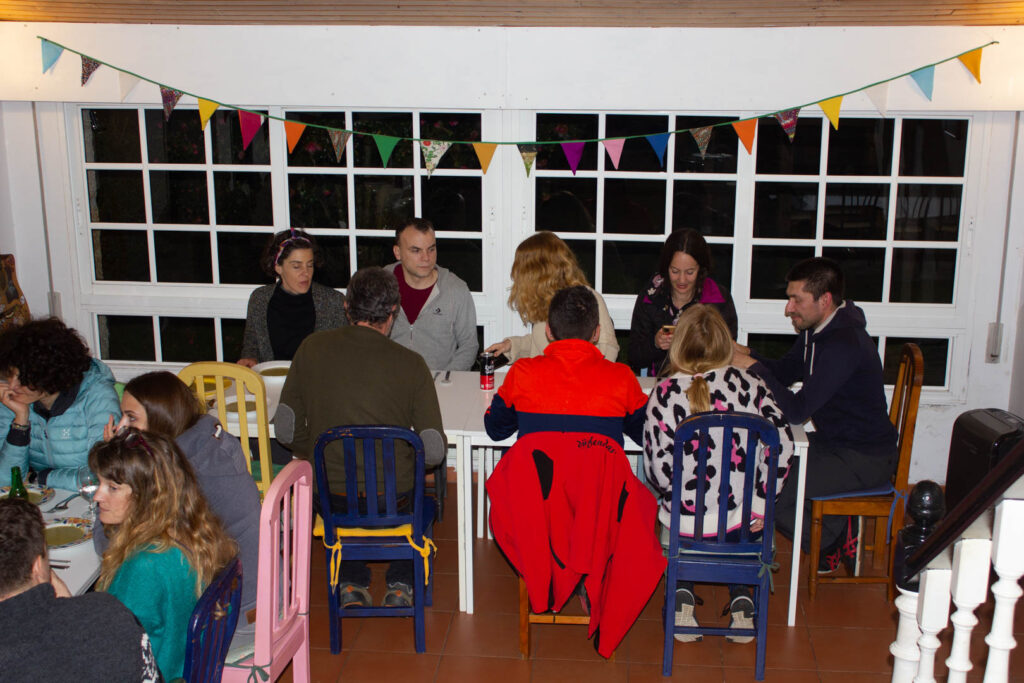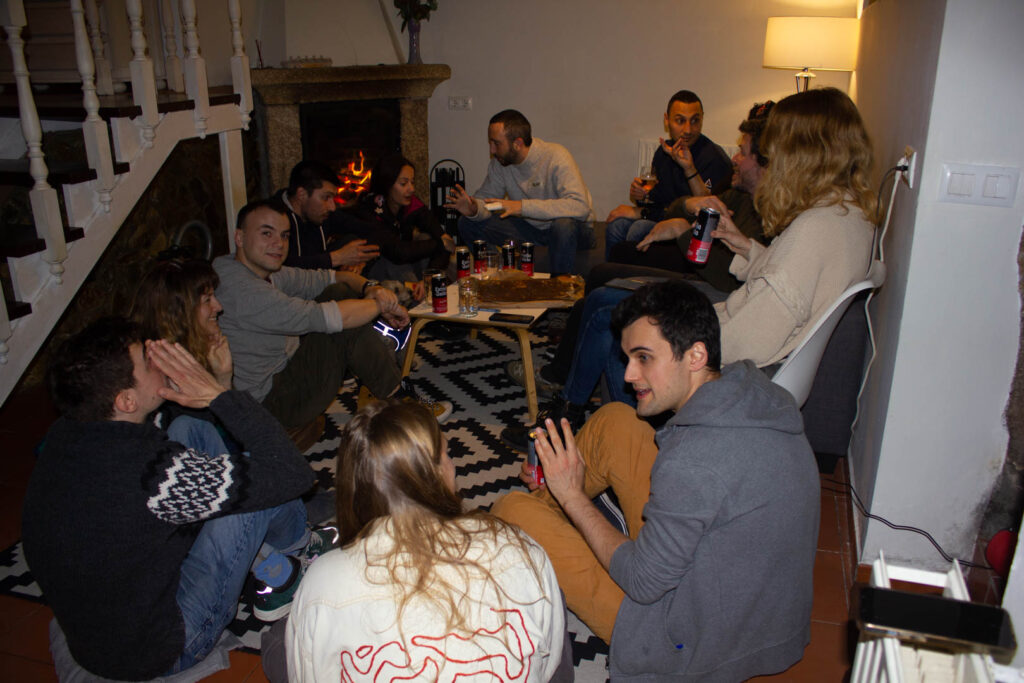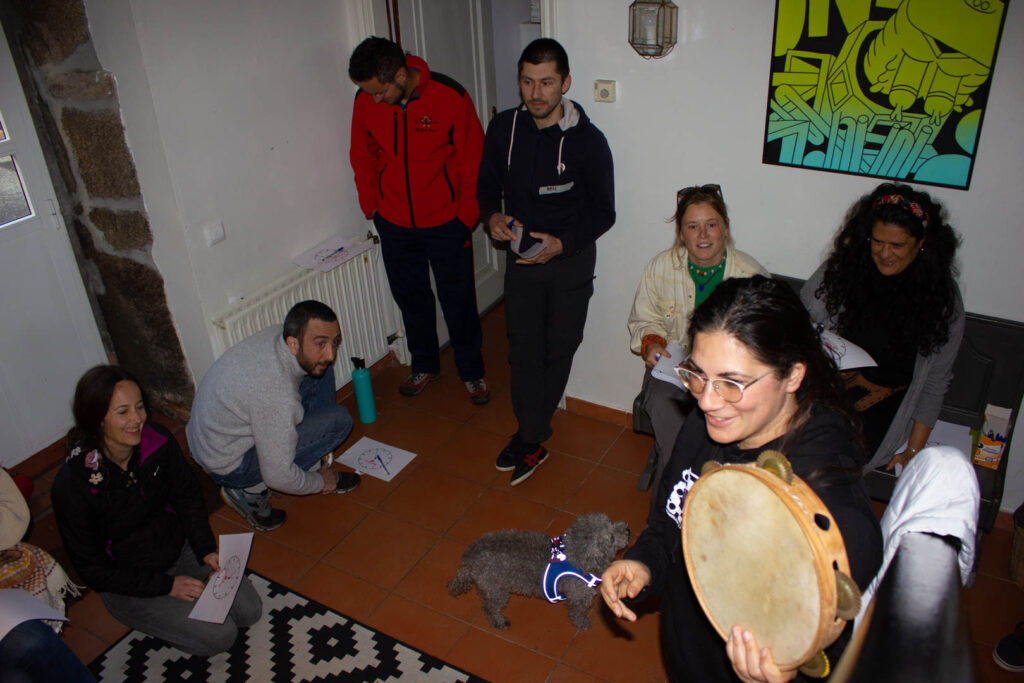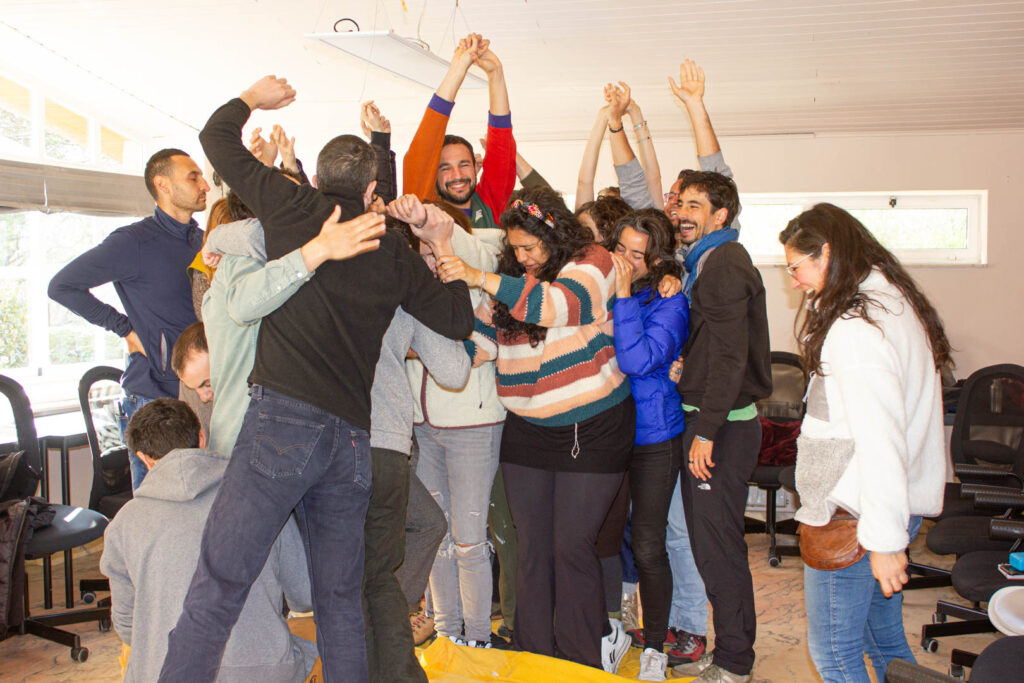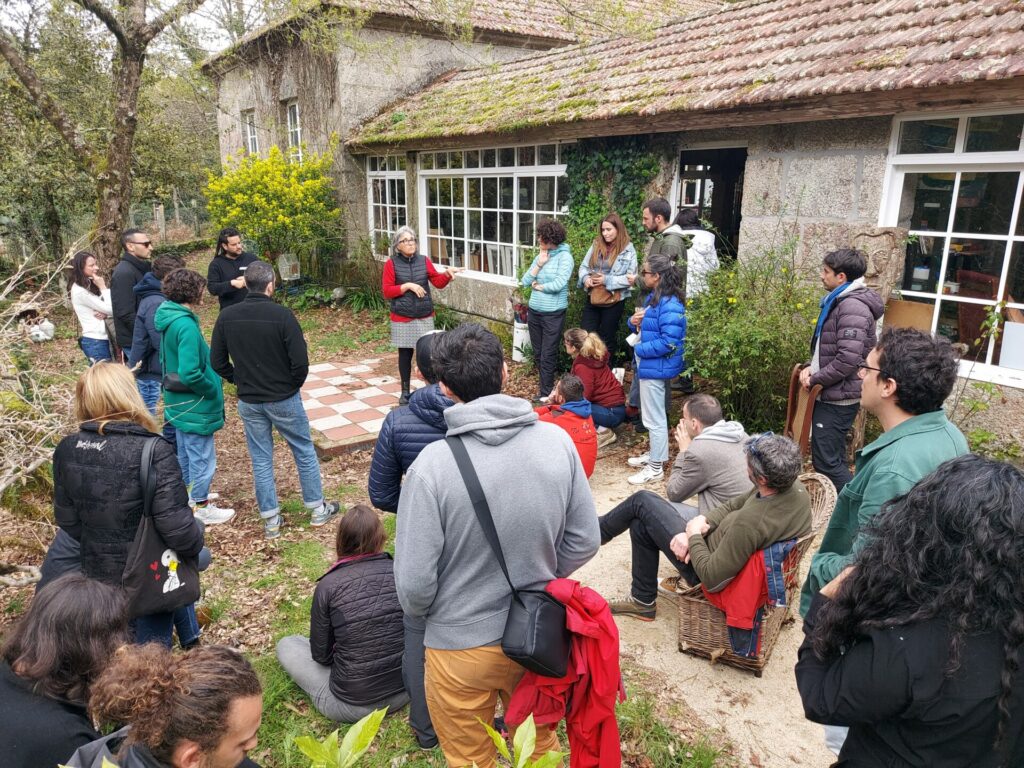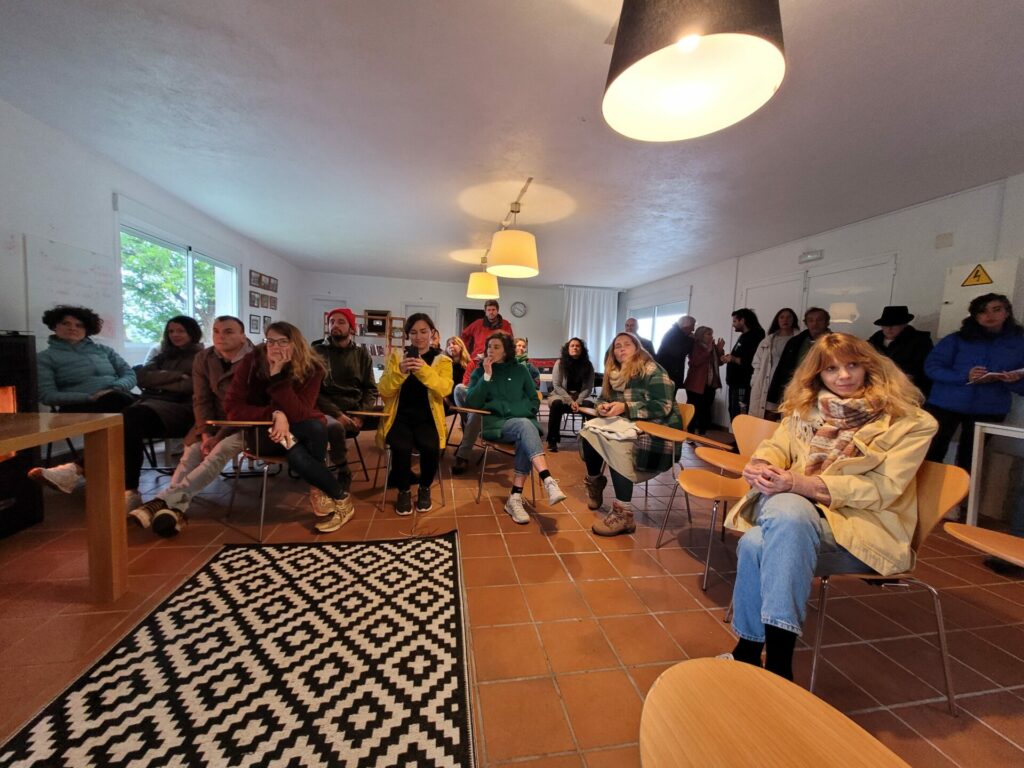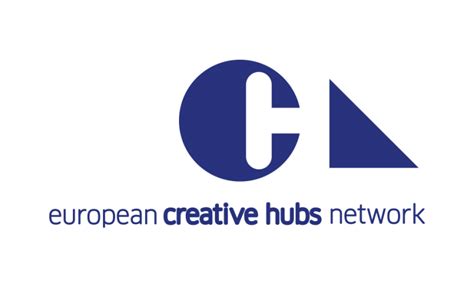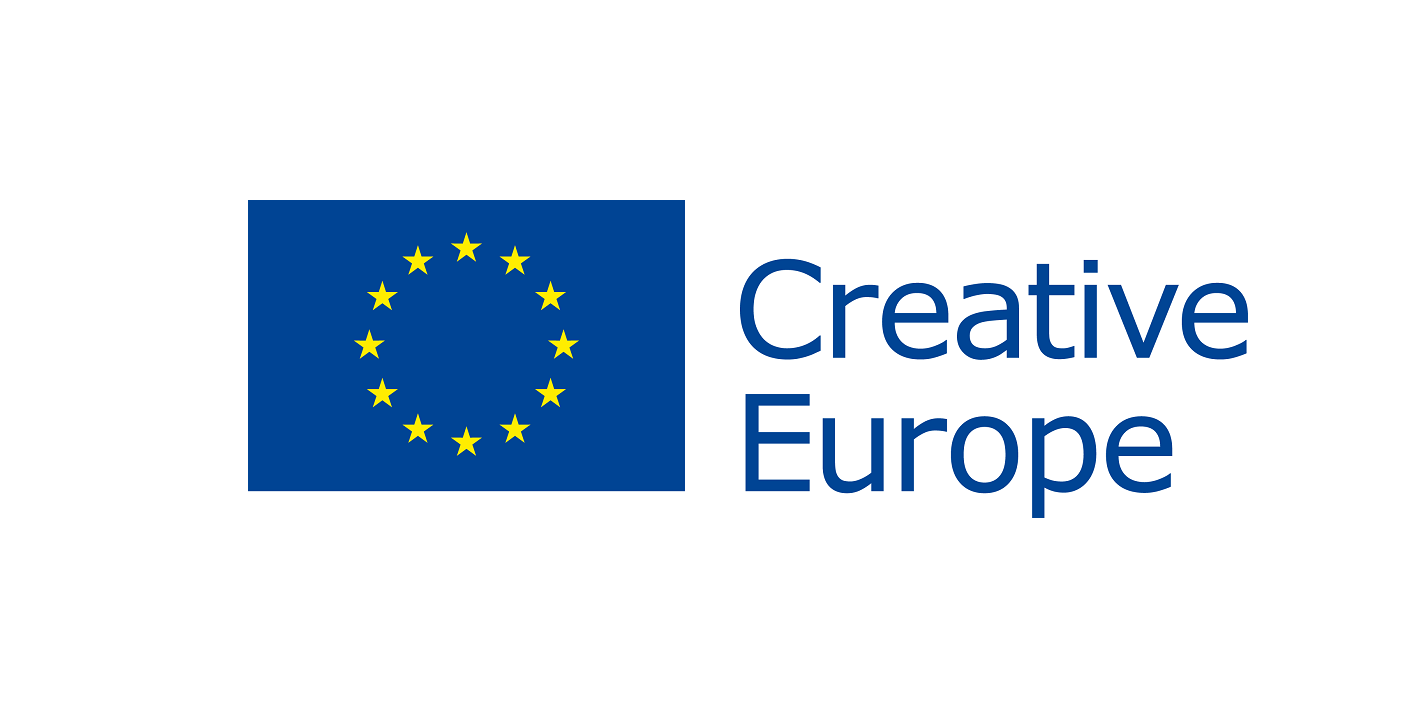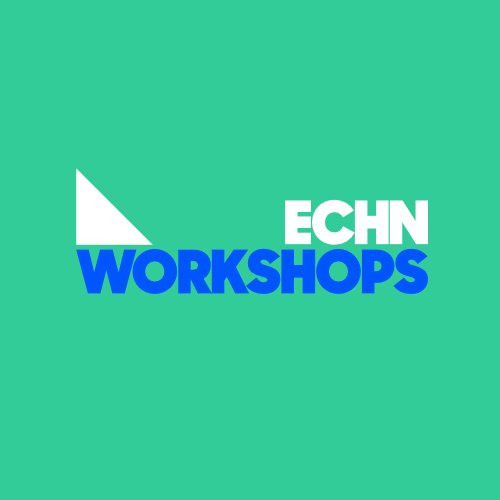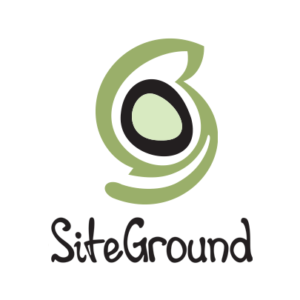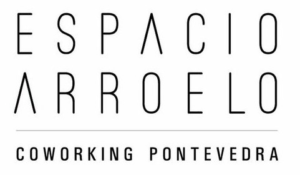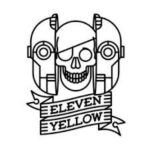Rural Hacking Workshop: Igniting Change in Rural Europe through Creative Hubs, Coliving, and Coworking Spaces
The ECHN Rural Hacking Workshop was a four-day event funded by the European Creative Hubs Network that brought together 24 members from creative hubs, coworkings, and colivings across Europe at Anceu Coliving. This inspiring and energizing experience sparked new ideas, perspectives, and possibilities for revitalizing rural areas through creative hubs, coliving, and coworking spaces throughout Europe. In this blog post, we’ll take you on a day-by-day journey of this unforgettable event.
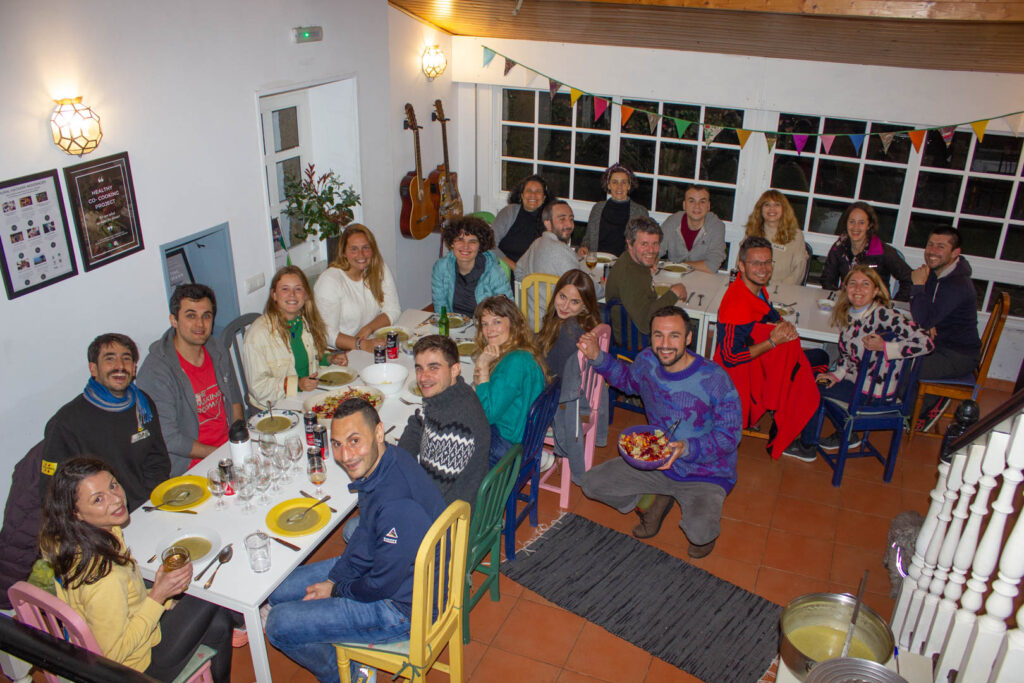
What was Rural Hacking Workshop?
Rural hacking was a pop-up coliving experience to exchange ideas, perspectives, and possibilities about how to revitalize rural areas through creative hubs.
Members from Alpiness Coliving, Burgas Coliving, Rooral.co, The Making Rooms, Buinho, Quinta da Quinhas, Chateau Coliving, Sun and Co, Selgars, Wellbeing Economy Alliance, Dinamo10, Sonta Coliving, Culture Hub Croatia, Tertulia Farm, Vine21, Espacio Arroelo and The Living Room attended to the workshop.
Day 1: Building Connections and Creativity
The first day of the Rural Hacking Workshop set the tone for the entire event, immersing participants in a whirlwind of activities designed to foster connections, ignite creativity, and explore the power of creative hubs in rural areas. As 24 members from across Europe arrived at Anceu Coliving, excitement and anticipation filled the air.
The day began with a Creative Breakfast, where each participant designed a crepe that represented their objectives and expectations for the workshop. This innovative icebreaker encouraged collaboration and set the stage for the day’s events, allowing participants to learn more about each other and their goals for the workshop.
After breakfast, the group dove into a team-building exercise focused on creating Rural Chindogus. A Chindogu is the practice of inventing ingenious everyday gadgets that seem to be ideal solutions to particular problems but may cause more problems than they solve. This activity challenged participants to think outside the box and work together, fostering an atmosphere of creativity and camaraderie.
Participants then learned about Anceu Coliving’s history and its various social impact initiatives, such as Rural Makers, At Home, Rural Hackers, and Rural Revival. This introduction showcased the transformative power of creative hubs and their potential to revitalize rural areas.
Lunchtime offered an opportunity for participants to meet Nandini, a woman from India who had fallen in love with Galicia and made it her home. Nandini’s passion for developing a social and cultural movement in the area, with a focus on promoting harmonious ways of living through practices like permaculture and Ayurvedic food, inspired everyone present.
In the afternoon, participants shared personal and professional stories during Inspirational Sessions. Each person had seven minutes to recount aspects or people who had been game-changers in their lives. This exercise encouraged participants to reflect on their journeys and celebrate the power of transformation.
To cap off the day, the group enjoyed a delicious dinner at Solfami, a local music association that introduced them to Galician culture and traditions. With newfound friendships and connections forged, Day 1 of the Rural Hacking Workshop set the stage for the exciting days ahead.
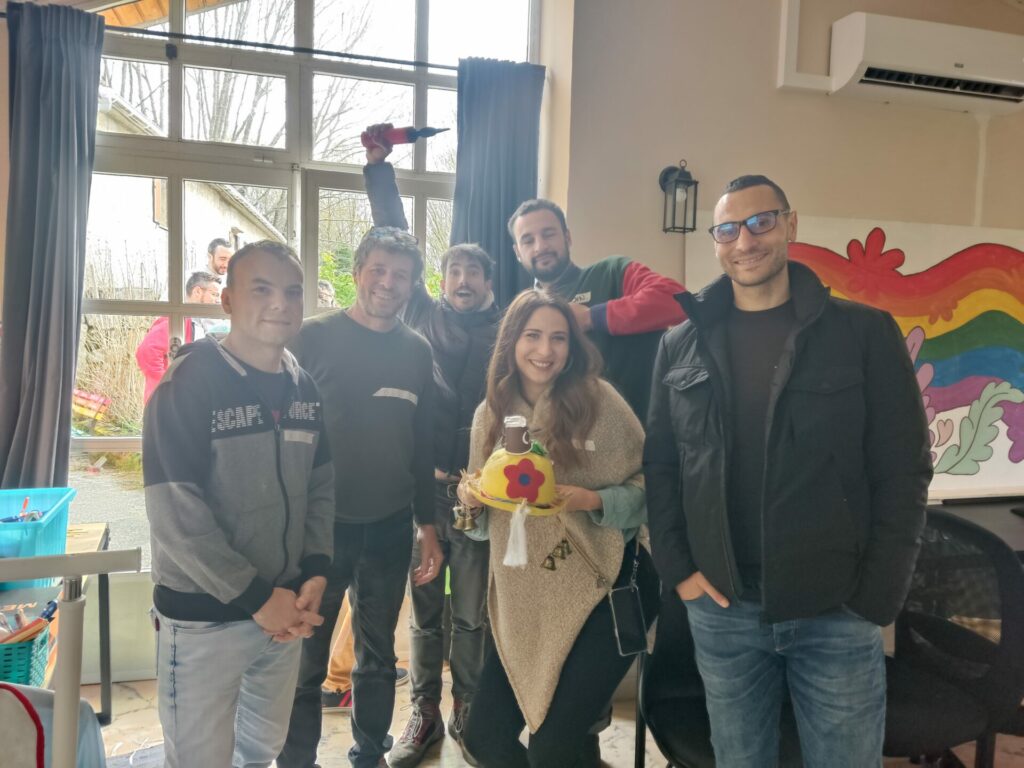
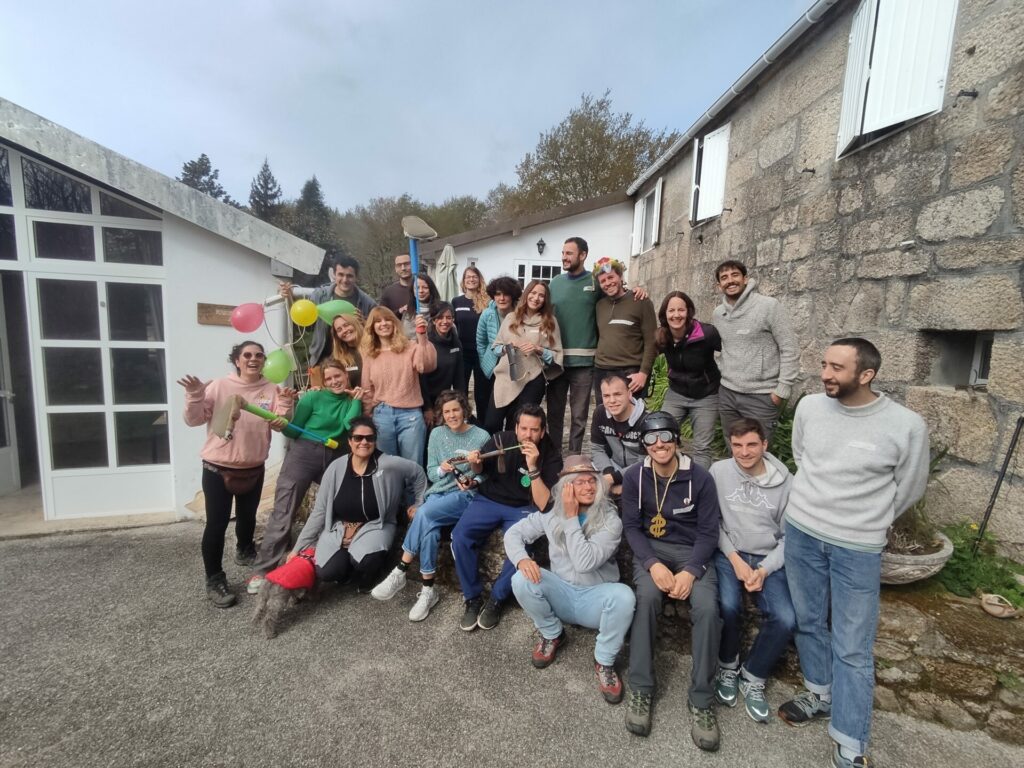
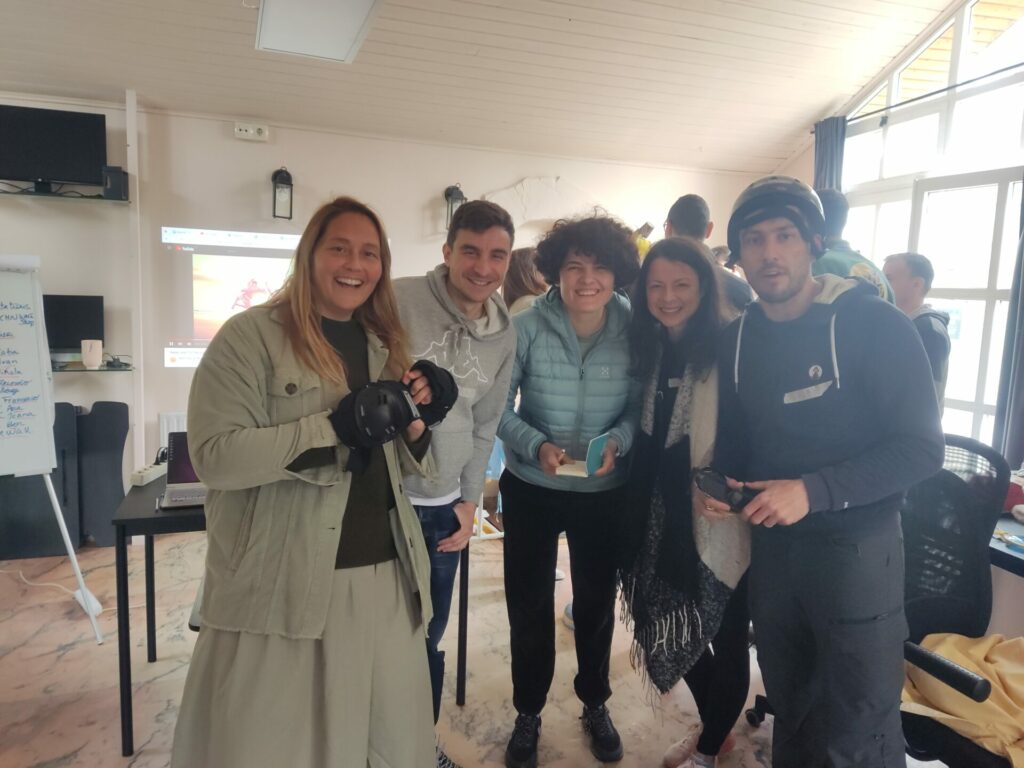
Day 2: Empowering Rural Communities and Creative Hubs
The second day of the Rural Hacking Workshop delved deeper into the potential of creative hubs, coliving, and coworking spaces to drive positive change in rural communities. Participants engaged in meaningful discussions, brainstorming sessions, and hands-on activities that emphasized the importance of flexibility, open-mindedness, and collaboration in fostering rural development.
The day began with a brainstorming session where participants shared strategies and proposals for making a positive difference in their home-country communities. Guided by a framework provided by the organizers, participants worked in teams, exchanging real examples of different aspects that influence the process of creating a project with local impact. The goal was to develop open-source material that other hubs could use as a resource for their initiatives.
Afterward, the group shifted their focus to developing skills as hub managers, specifically concentrating on flexibility and open-mindedness. An interactive exercise using Lego pieces highlighted the importance of these qualities, as participants were tasked with creating their own versions of a dinosaur using the same set of pieces. This activity demonstrated that approaching the same task with different perspectives and a flexible mindset can lead to better outcomes.
The workshop also provided an opportunity for individual reflection. Participants used a template to explore the emotional aspects they would like to maintain, avoid, eliminate, and acquire in order to become the best hub manager version of themselves.
In the afternoon, the group visited Tia Ni, a cultural center in the village of Gaxate, just a five-minute drive from Anceu. Founded by Nieves, a literature and culture enthusiast, Tia Ni boasts a vibrant community space that includes a bookstore by kilo, an outdoor cinema, a second-hand shop, and various cultural activities. Nieves’ passion and dedication demonstrated the enormous potential for growth and development in rural areas, showcasing how creative hubs can drive change.
Through a day of brainstorming, skill development, and exploring successful rural initiatives, participants in the Rural Hacking Workshop gained valuable insights and inspiration to take back to their communities and enact positive change.
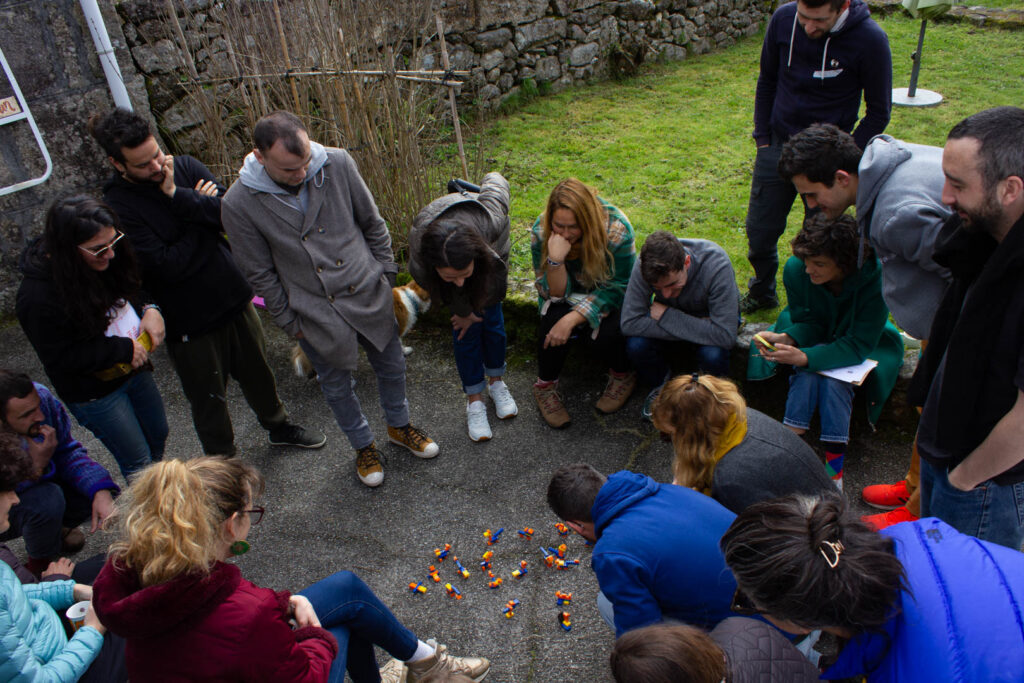
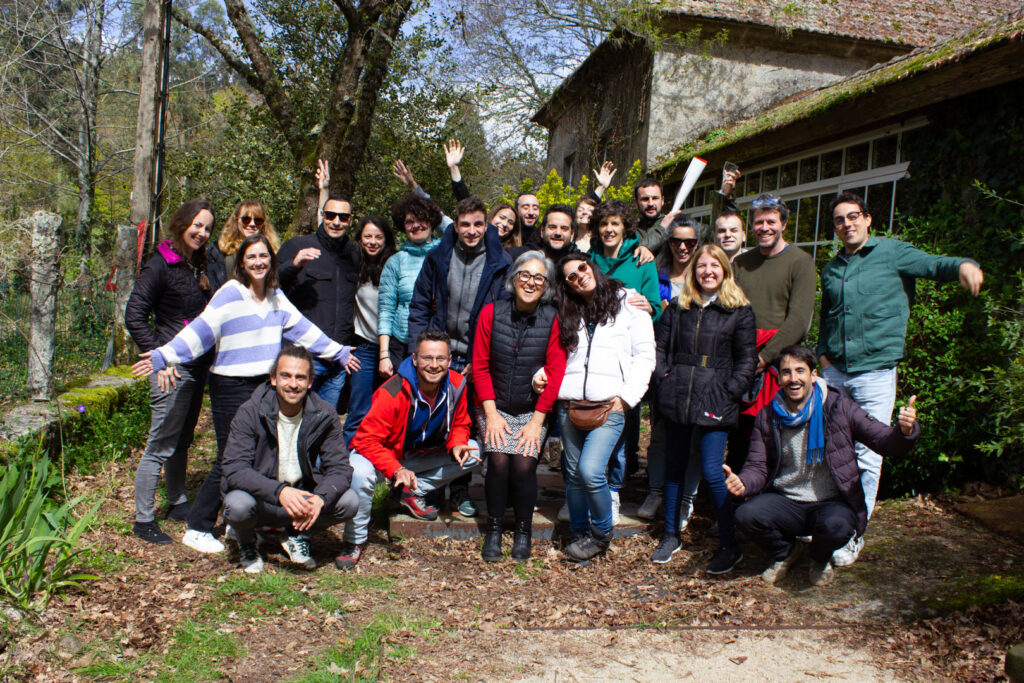
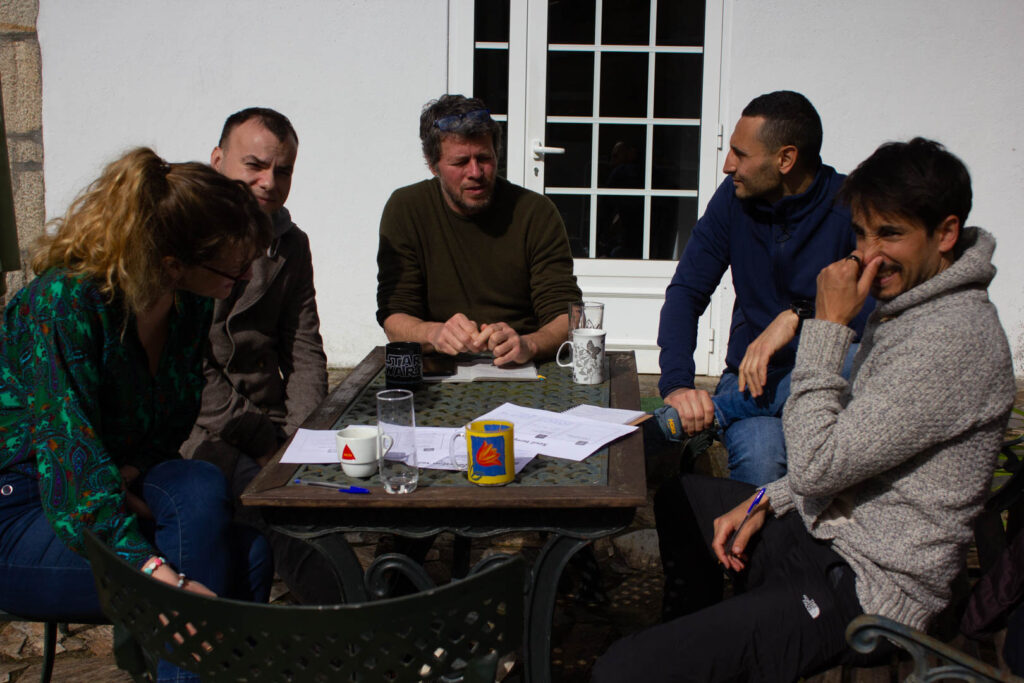
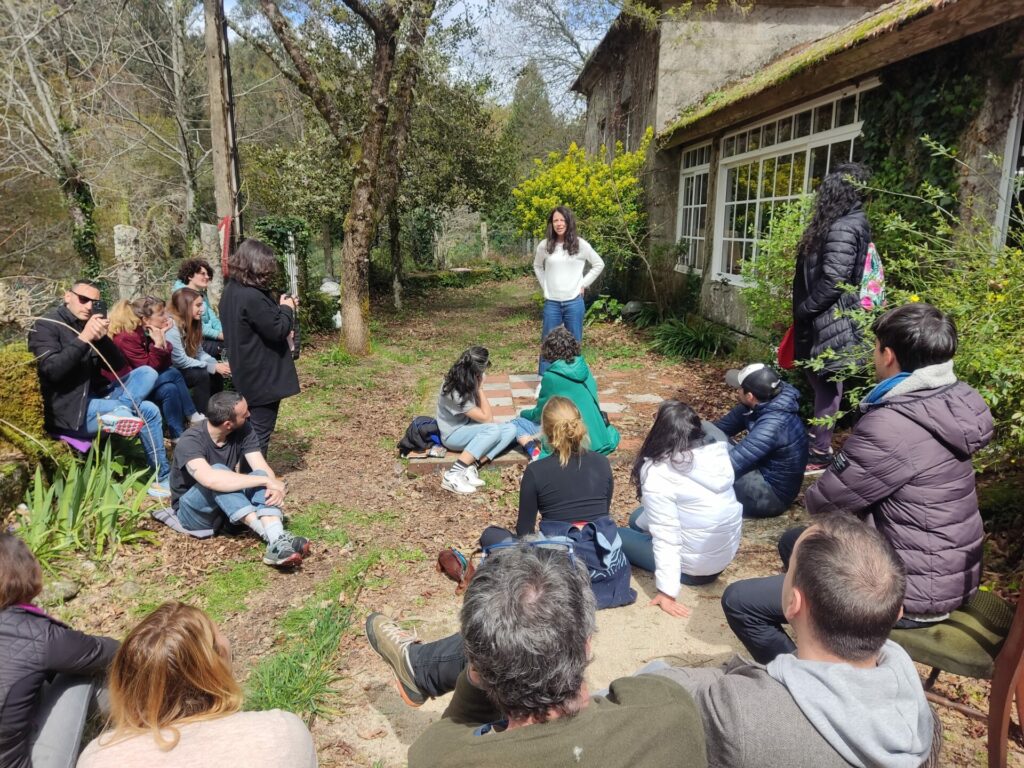
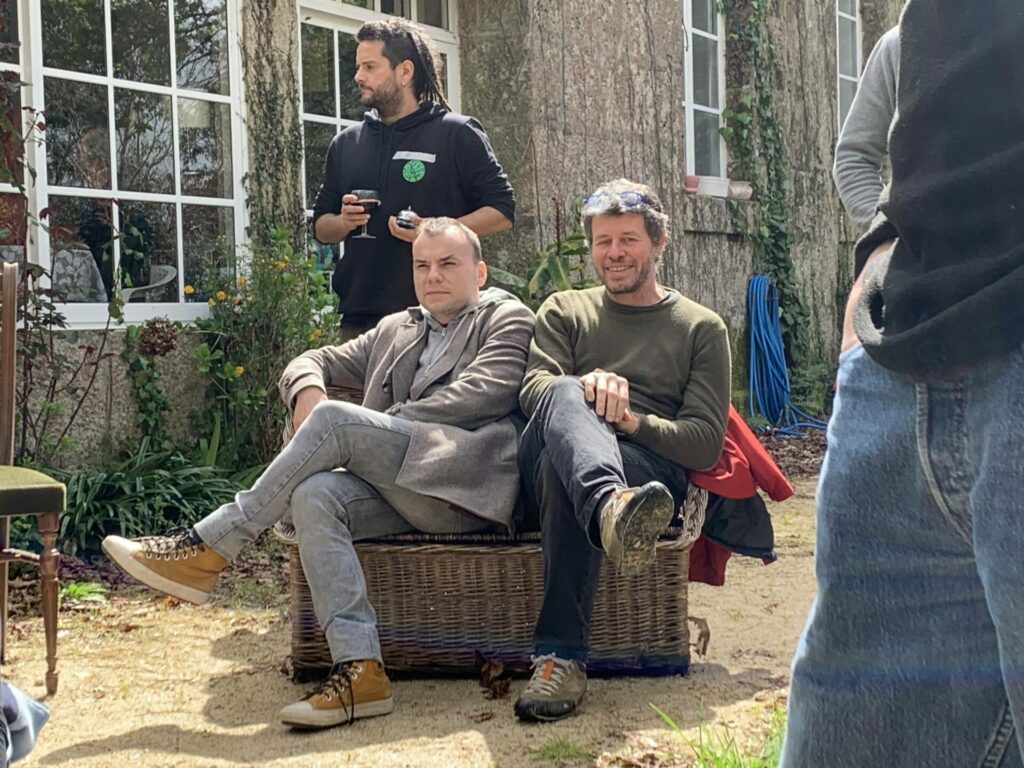
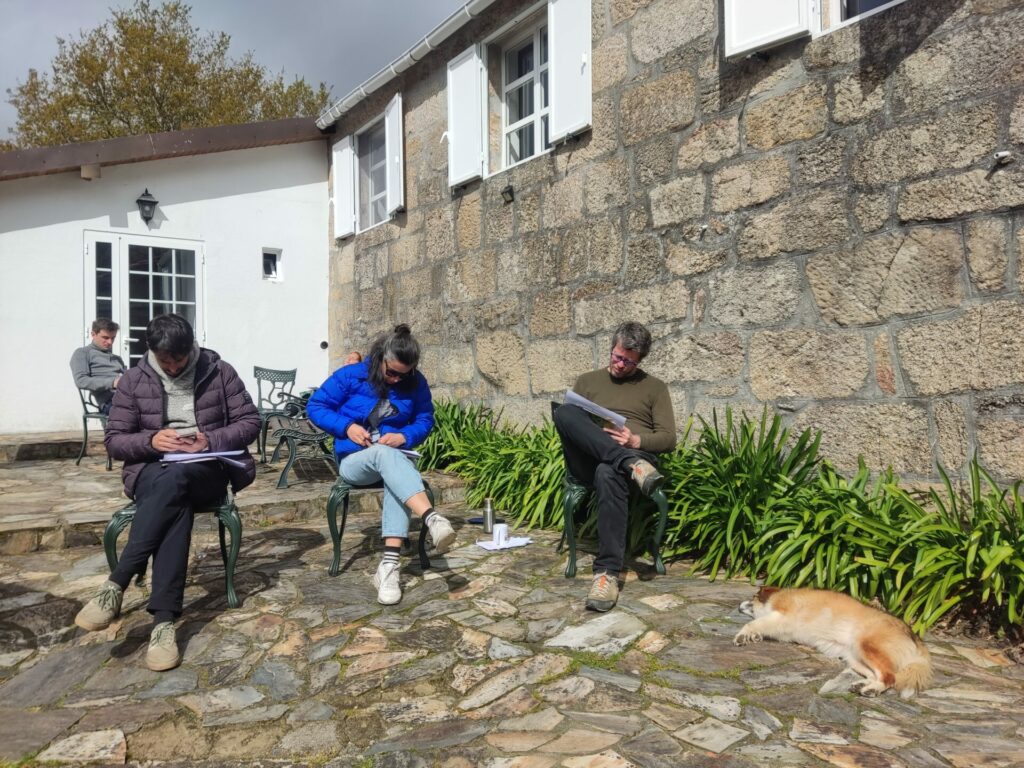
Day 3: Building Rural-Urban Alliances and Fostering Cross-Cultural Connections, and Learning from Sende
On the third day of the Rural Hacking Workshop, the focus shifted to building rural-urban alliances and fostering cross-cultural connections. Participants engaged in team-building exercises, reflective activities, and cultural exchange events that emphasized the importance of collaboration and understanding in bridging the gap between rural and urban communities.
The day commenced with a team-building dynamic where participants stood on a piece of cloth and were challenged to flip it over without anyone falling off. This exercise highlighted the importance of teamwork and collective problem-solving, skills that are crucial when building rural-urban alliances.
Following the team-building activity, participants shared their thoughts on what it means to build rural-urban alliances, discussing the benefits of working together and how these alliances can help address challenges faced by rural areas.
Next, participants took part in a self-reflection activity, identifying the local, national, and international alliances within their networks. By sharing their international alliances, they aimed to inspire others with potential connections worth pursuing.
Examples of networks mentioned included ECHN, Ashoka, Fab City, Foundation WEAll, EU Heritage Volunteers, Siteground, WordPress Community, WordPress Foundation, and Vulca.
One of the day’s highlights was a visit from the Sende team, who are the pioneers behind the first rural coliving space in Europe. They came to Anceu to share their experiences and provide an inspirational talk on how they have successfully established and managed a thriving rural coliving space. Their insights and practical advice were invaluable for participants seeking to create similar spaces in their own communities.
The afternoon featured a unique cultural exchange event, the third edition of Entre Culturas, held at Casa do Pobo. This gathering brought together ECHN participants and the local community to share food, music, and stories. Participants prepared recipes from their countries, while locals contributed dishes representing their region, country of origin, or countries they had emigrated from years ago.
The evening’s entertainment included a concert by the Tambourine band Torreiros de Forzáns, showcasing Galician traditional music and dances. Additionally, the Combo de Cuñas jazz band from a nearby village, which included Anceu Coliving’s own Agustin, delivered a lively performance.
Day 3 of the Rural Hacking Workshop underscored the value of events like Entre Culturas in promoting cross-cultural understanding and appreciation. By sharing traditions, music, and food, participants built bridges and connections with people from different backgrounds and walks of life, enriching their Rural Hacking Workshop experience.
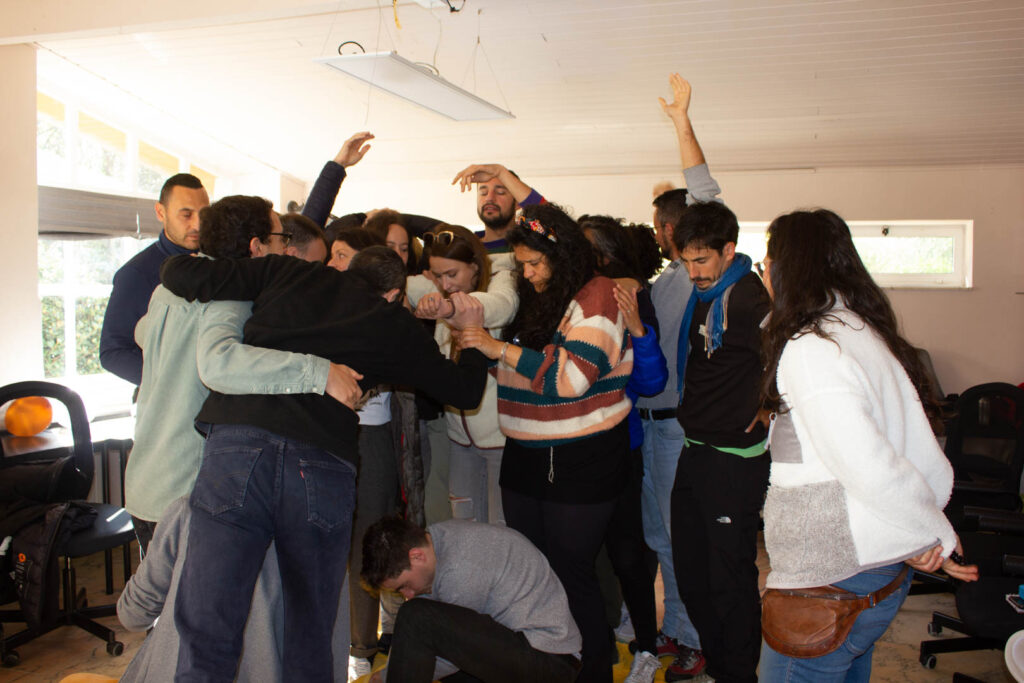
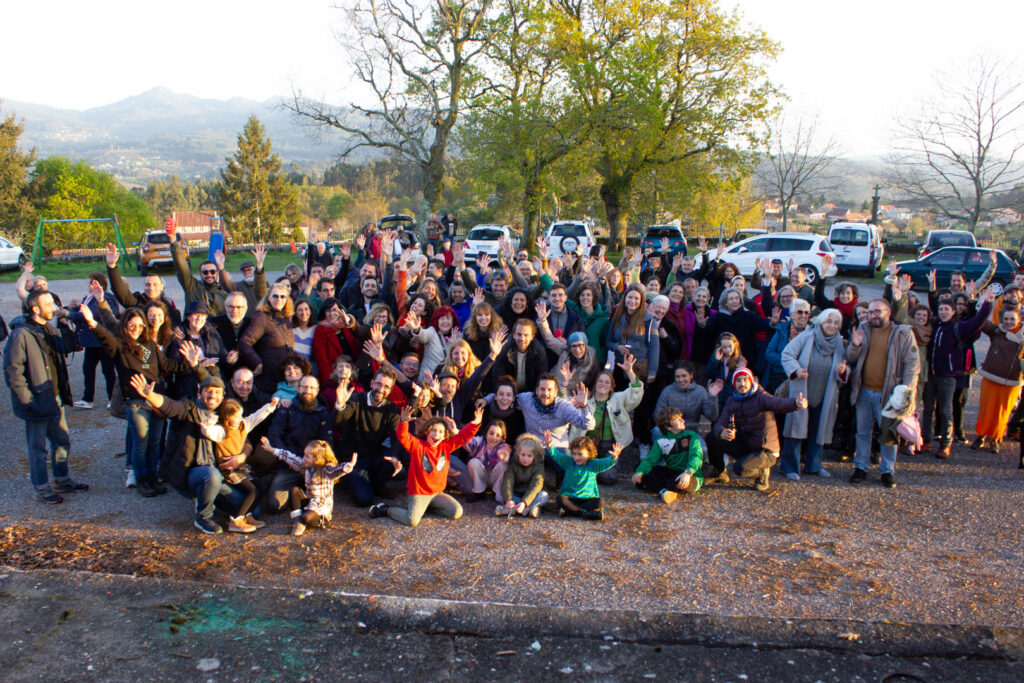
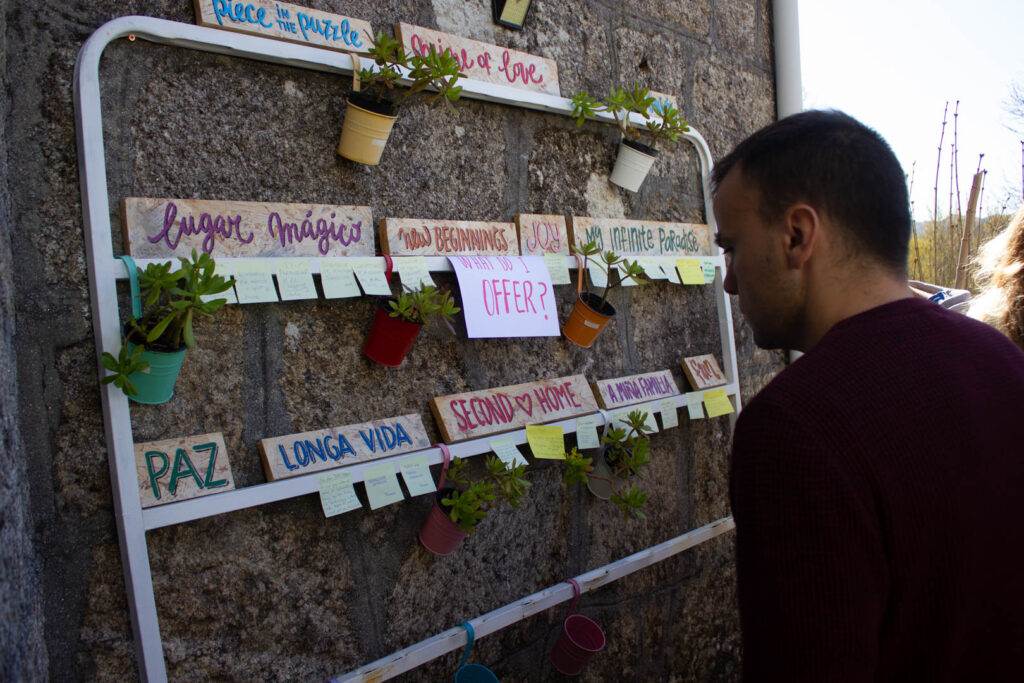
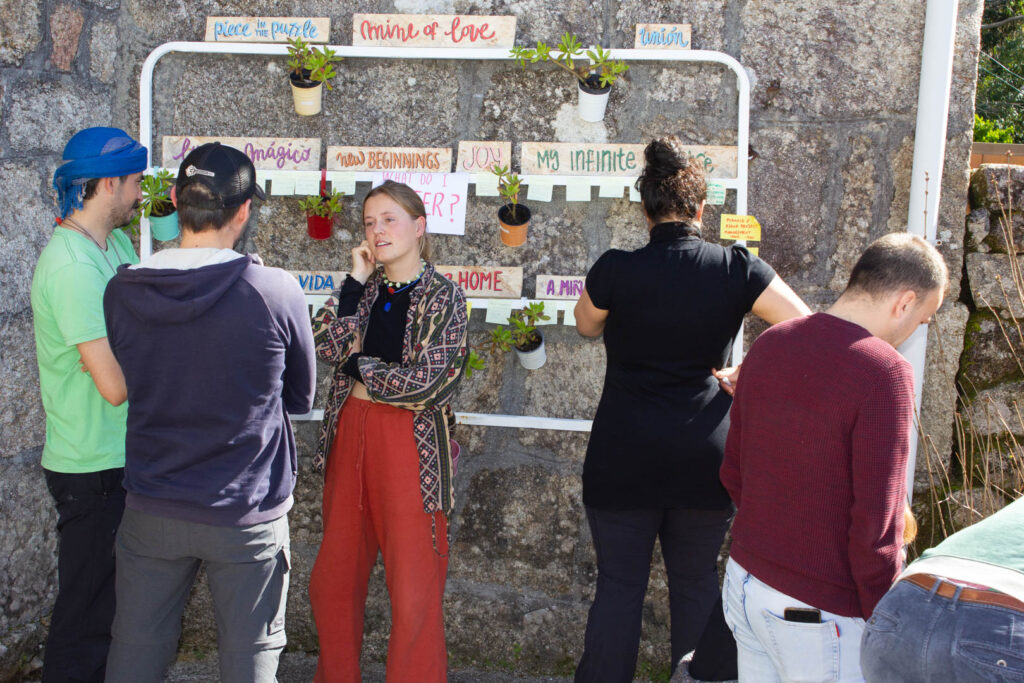
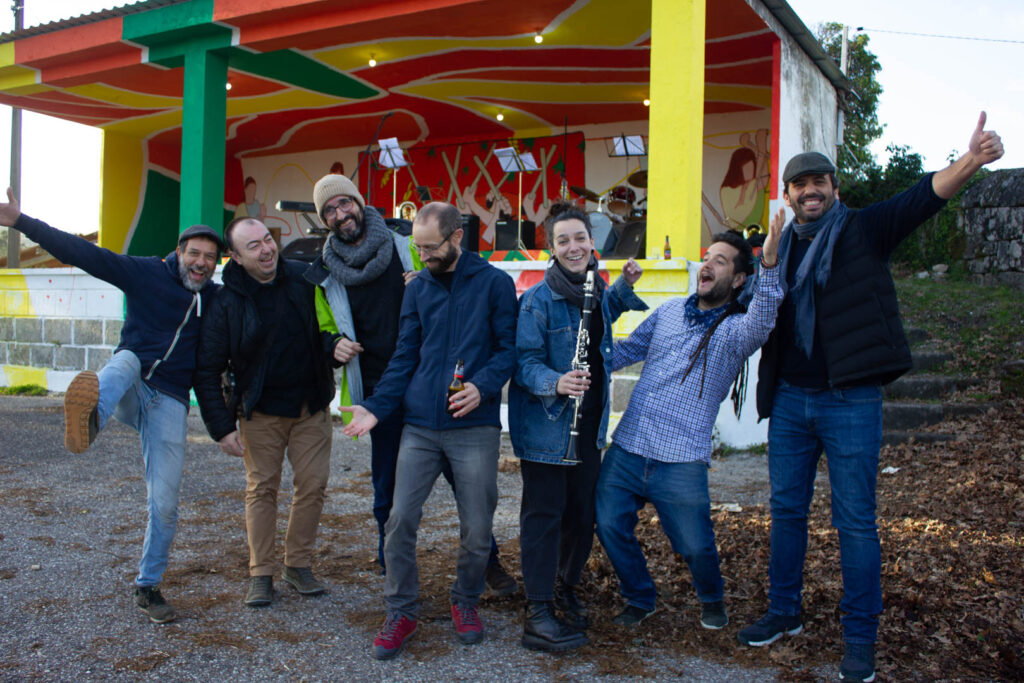
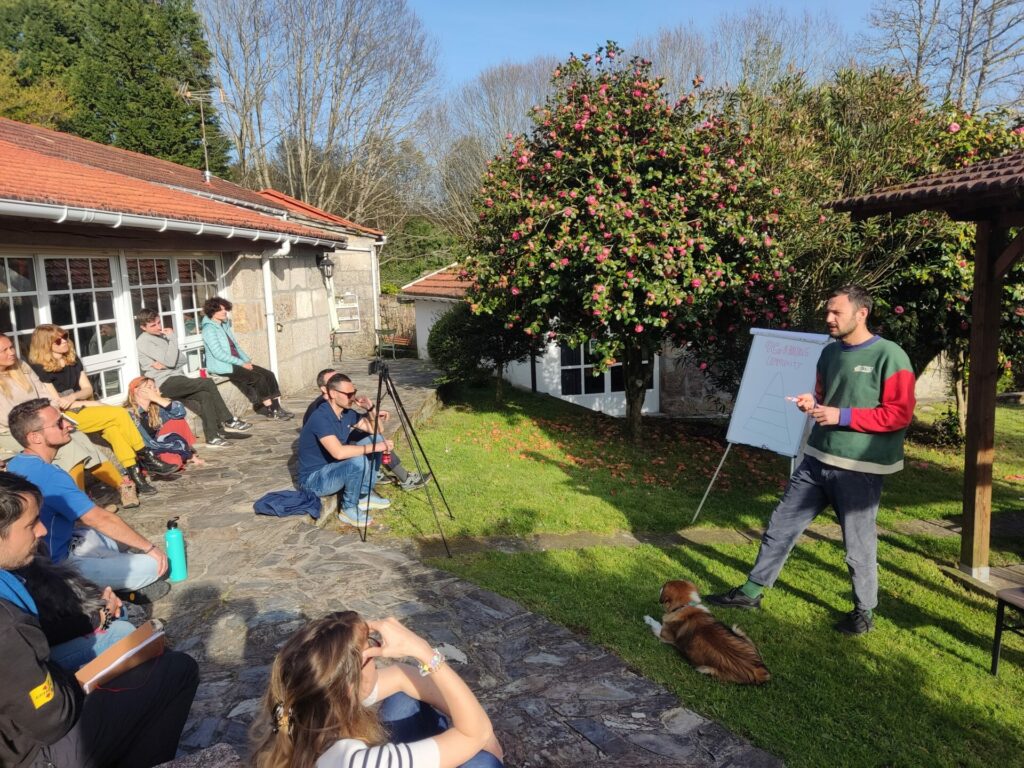
Day 4: Preserving Cultural Heritage and Building Connections
On the final day of the Rural Hacking event, participants came together to work on the long-term project called ‘Pegadas do Recordo,’ which aimed to combine audiovisuals and the invisible heritage of the village. Collaborating with the local villagers, participants recorded the forgotten stories of the village, such as the flooded village of Eiras, memories of playing football, and the history of the water mills. Working in teams with the villagers, they ensured that at least one villager was a protagonist in each video.
Through this project, participants got to know the villagers and their stories, including Pepe, who shared the story of the flooded village, Laurita, who used to visit the mills with her mother, and Casiano, who remembered playing soccer with friends from three different villages. These videos will be included in signs all over the village with NFC and QR codes to showcase the rich cultural heritage of the area.
After the ECHN workshop, the plan is to continue developing this project with all those who want to join, ensuring the preservation of the village’s cultural history.
To cap off the day and the entire Rural Hacking Workshop, the group organized the “Comer e Cantar Event” with local artist Marcelo Dobode. As a passionate musician and dancer, Marcelo is dedicated to preserving and promoting traditional Galician music and culture. His performance allowed everyone to discover Galician lyrics, sing, and dance with all their hearts, celebrating the incredible connections and memories created during the workshop.
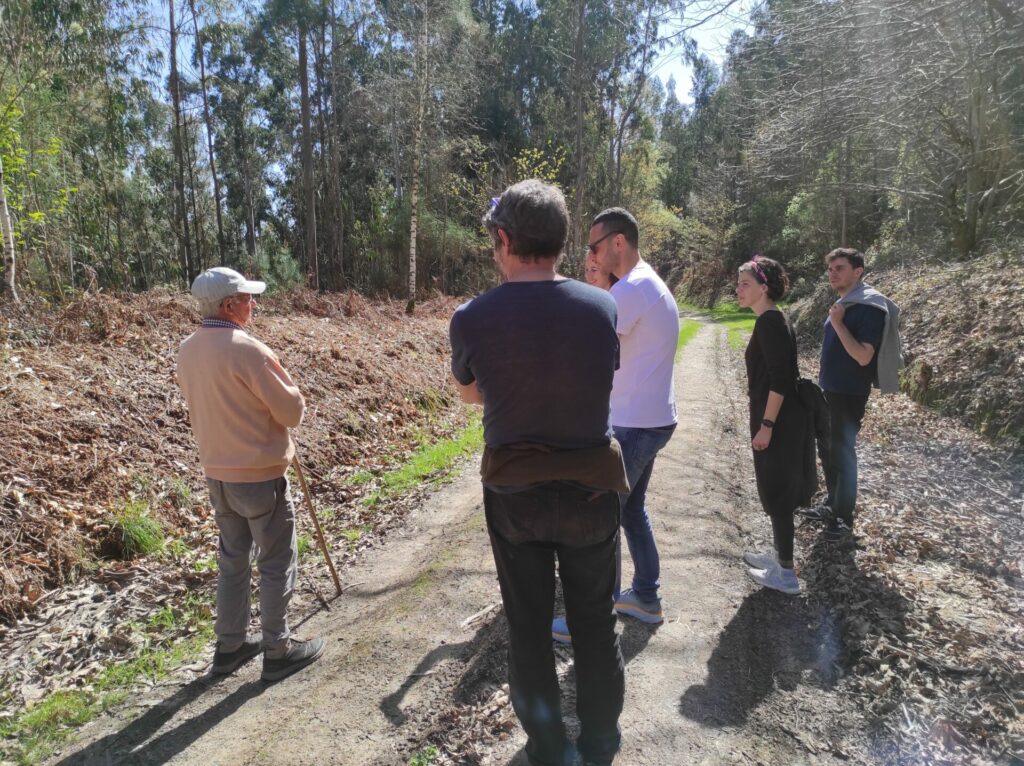
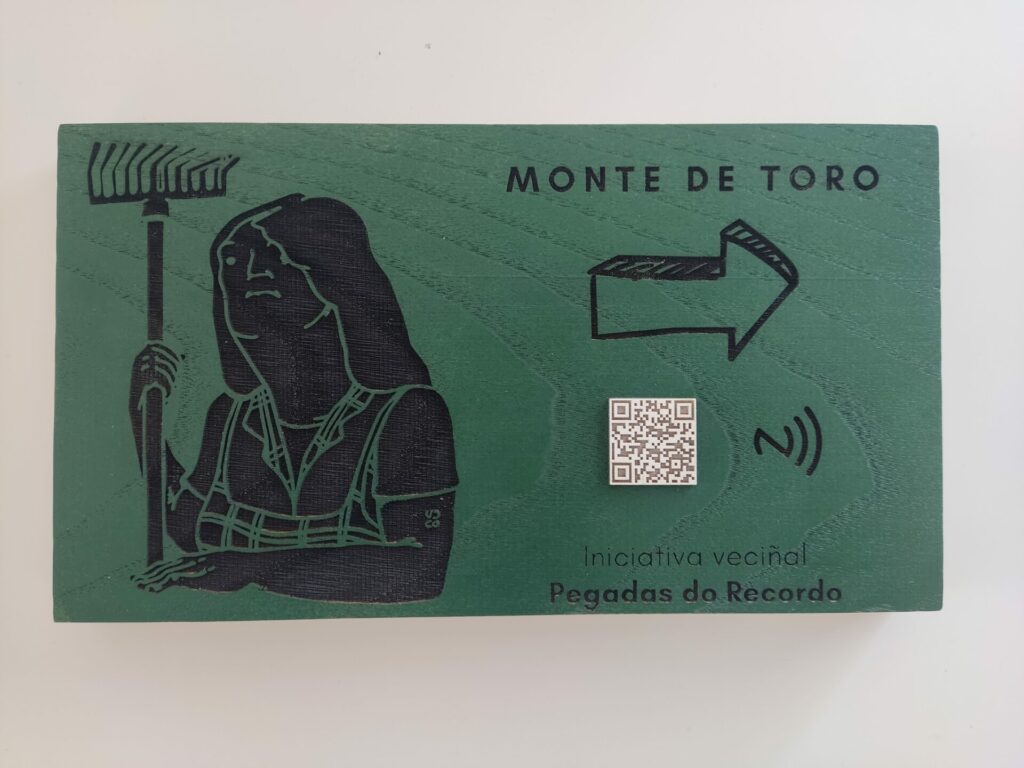
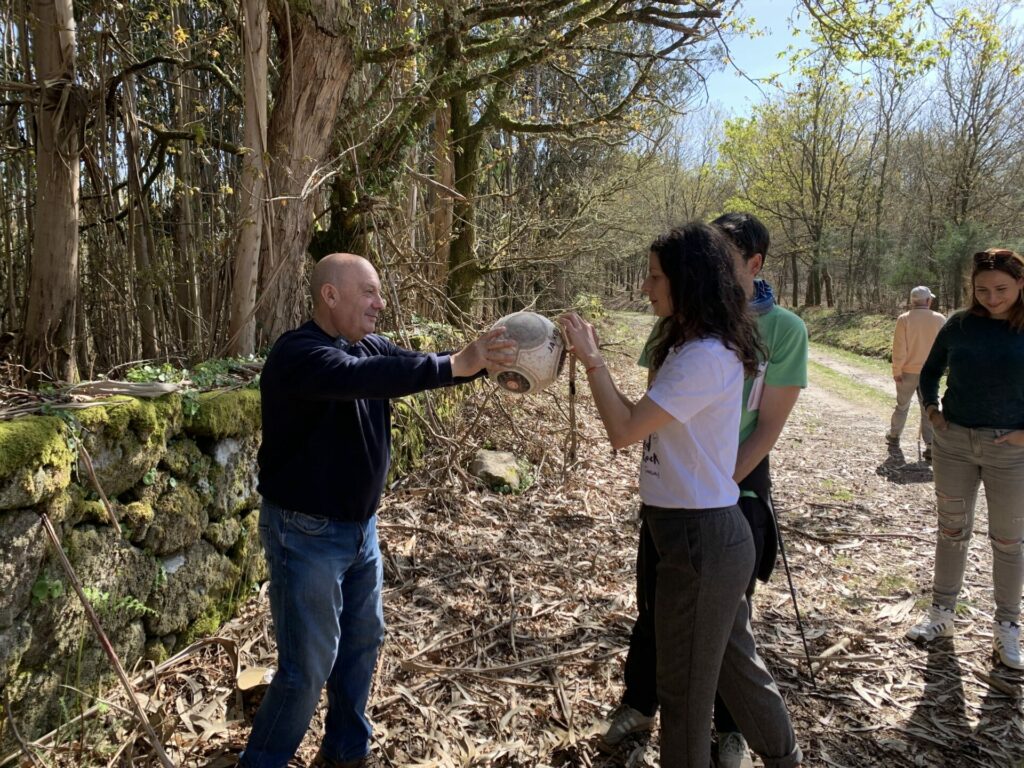
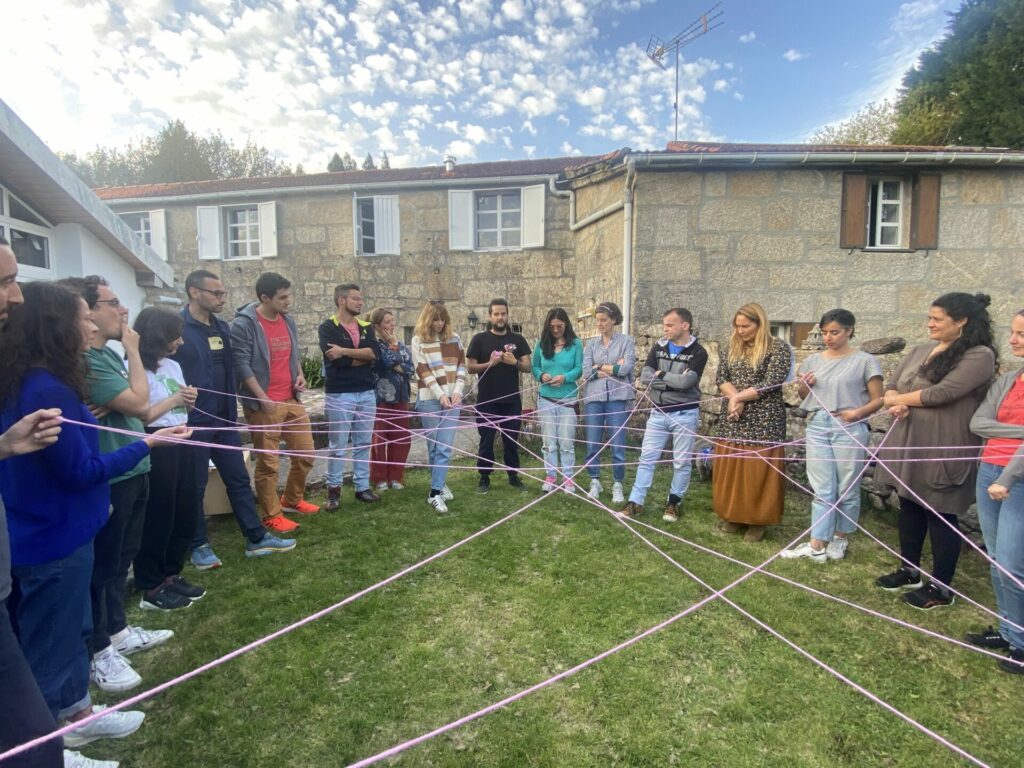
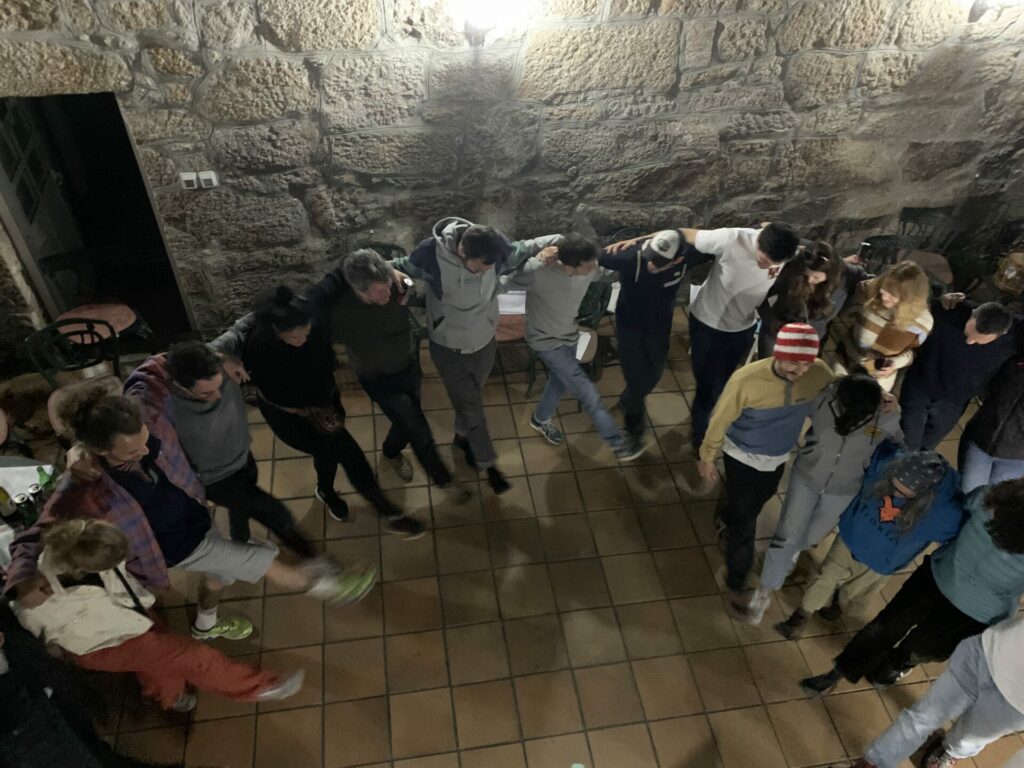
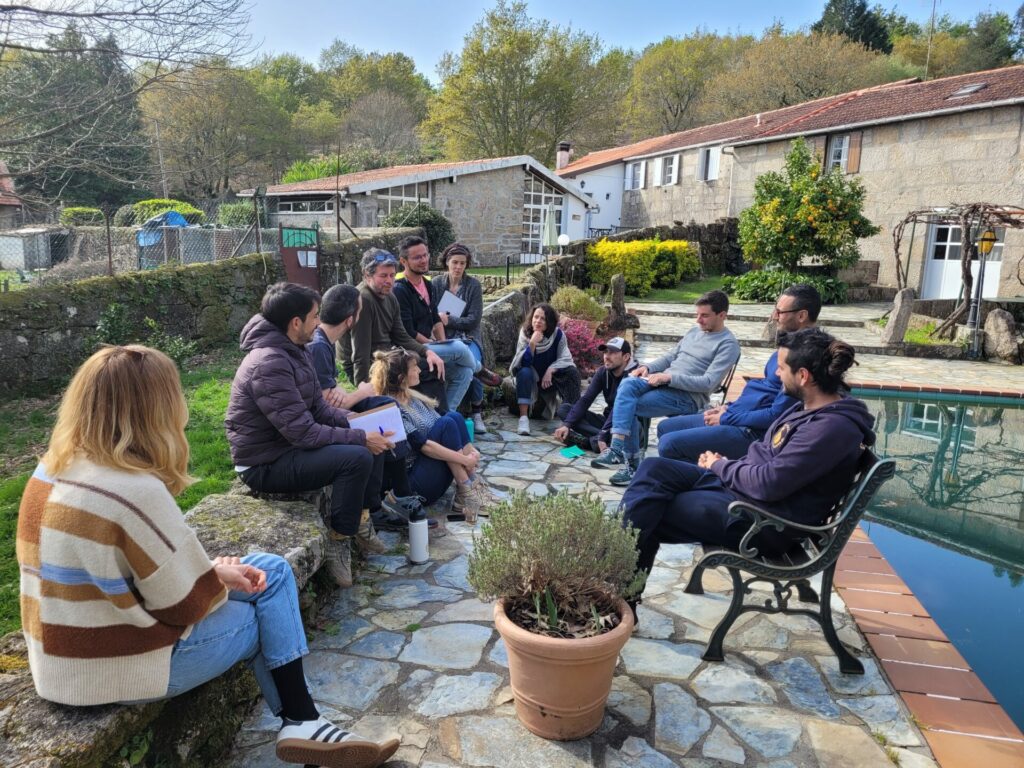
ECHN Rural Hacking Workshop: Uniting Creative Minds for a Sustainable Future
The Rural Hacking Workshop proved to be a transformative and enriching event that brought together 24 members from creative hubs, coworking, and coliving spaces across Europe. Throughout the four-day workshop, participants engaged in a variety of activities, including team-building exercises, brainstorming sessions, cultural exchanges, and hands-on projects that aimed to address the challenges faced by rural areas and explore new possibilities for revitalization.
A key takeaway from the workshop was the importance of fostering rural-urban alliances and embracing flexibility, open-mindedness, and cross-cultural collaboration in driving positive change in rural communities. Participants shared their personal and professional stories, discussing their experiences with local impact projects and exchanging ideas for creating sustainable solutions.
The workshop also highlighted the potential for growth and development in rural areas, with visits to local cultural centers and inspirational talks from pioneers like the Sende team. The event showcased the power of creative hubs in driving change and the role of cultural heritage preservation in maintaining a strong sense of identity and community.
One of the most impactful projects to emerge from the workshop was the ‘Pegadas do Recordo’ initiative, which combined audiovisuals and storytelling to preserve the invisible heritage of the village. This long-term project demonstrated the commitment of participants to engage with local communities and the potential for collaboration between creative hubs and villagers in shaping a shared future.
Throughout the event, participants forged strong connections and established lasting relationships, which will undoubtedly continue to inspire and support further innovation and progress in the realm of rural coliving and coworking spaces throughout Europe. The Rural Hacking Workshop exemplified the power of diverse perspectives and collective problem-solving in addressing complex challenges and identifying opportunities for positive change.
In conclusion, the Rural Hacking Workshop was a resounding success that left participants energized and inspired, ready to bring new ideas, perspectives, and strategies back to their home-country communities. The event provided a valuable platform for collaboration, learning, and the exchange of knowledge and experiences, ultimately fostering a spirit of unity and a shared vision for the revitalization of rural areas throughout Europe.
